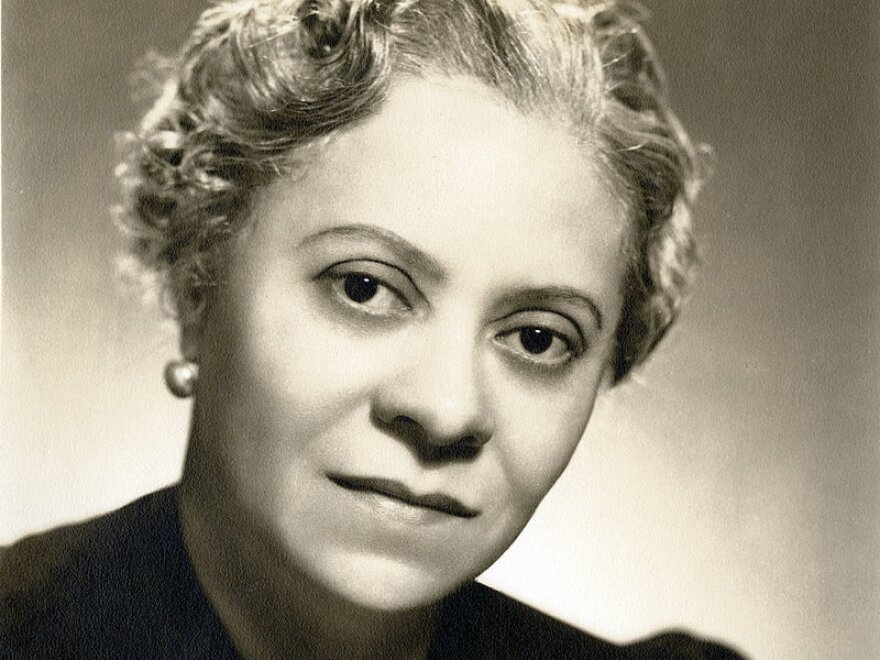The work of classical music composer Florence Price, who was born in Little Rock in 1887, is getting national attention after a rare find.

Price was the first African American woman to have her work played by a major American orchestra. She had a successful music career in her own time yet faded into the background after her death.
But, when stacks of her papers were found in an abandoned house in Illinois - including manuscripts, letters and diary fragments - that all changed.
In 2009, Vicki and Darrell Gatwood of St. Anne, Illinois. were renovating an abandoned house in desperate shape. The grass was overgrown, the floors were sunken and a tree had fallen and torn a hole in the roof.
As they looked around, they came across stacks of papers and kept seeing a name over and over: Florence Price.
Archivists Tim Nutt and Tom Dillard were working at the University of Arkansas in Fayetteville when the call came in about the discovery. So they traveled to Illinois to take a look, wondering what they would find.
"At that time, even though we were amazed by it, we didn't really know the full extent of exactly what was in that collection and how significant that find would be later on," says Tim Nutt, who is now director of the UAMS Library Historical Research Center in Little Rock.
The dilapidated house had also been vandalized.
Dillard says Price’s piano had been stolen and her papers strewn all over the floor. He says he thinks the Gatwoods could have easily shoveled up the papers, thrown them away and moved on with their renovations.
"It is really remarkable that we were able to get up there and get this collection, which had come so close to being lost," says Dillard, who is now retired and living in Little Rock.
Music Professor Linda Holzer of UA Little Rock, a Price scholar, says she thinks there’s an equation for success as a composer. She thinks the first is talent and drive, which she says Price had unquestionably.
"But another part of the equation is getting published. That makes it easier to get your works performed in concert and to go on to have commercial recordings and broadcasts of your music. In other words, to have your music live on after you," says Holzer. "Most of her concert works were still in manuscript form at the time of her death."
With the finding of Price’s lost and unknown works came a desire to have the manuscripts reconstructed, performed and recorded so the music could come to life.
The Center for Black Music Research in Chicago commissioned Trevor Weston, a music professor at Drew University, to create the long-lost Concerto in One Movement.
"I think at first it was daunting but the more that I felt like I got to know her - and that might sound strange, but I think in poetry, in visual art and in creative writing you get to know the essence of a person. So after playing through her music and getting a sense of who she was, it made it easier to make decisions," says Weston.
Other pieces found in the abandoned house that was once Florence Price’s summer home include two violin concertos.
Violinist Er-Gene Kahng with the University of Arkansas at Fayetteville premiered Price’s Violin Concerto No. 2 when the University held a three-day celebration of Florence Price in February. Kahng was also the soloist in a recording of both concertos recently released on the Albany Label, playing with the Janá?ek Philharmonic.
She spoke with Kyle Kellams of NPR-member station KUAF in Fayetteville shortly before the premiere about the partnership with the philharmonic, saying it was helpful to see their interpretations of Price’s music as well.
"Though there was a bit of a language barrier - and it may sound like a cliche - the fact that we have shared training in the language of music allowed for us to still - with very little time to get to know each other - explore the subtleties of music," said Kahng. "I think we came up with a product that all of us are very satisfied with and very proud to put forth as the result of a very honest, earnest effort."
Price was recently honored posthumously by the Arkansas State Music Teachers Association. The association once denied her entry because of her race. Holzer of UA Little Rock played an instrumental role in having Florence Price honored. She accepted the award on behalf of Price at a ceremony in Orlando, Florida.
"So we've come a long way. And many of us are working to ensure that she isn't forgotten again," said Holzer.
The documentary, along with updated content and interviews, is part of a special program called, "Gathering The Pieces: The Florence Price Legacy" that airs Friday, May 4, at 7 p.m.






